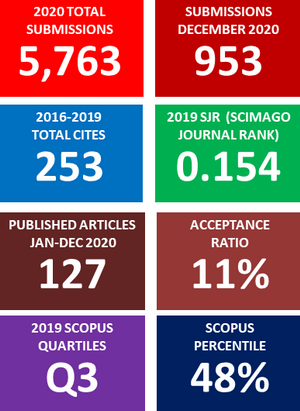Experiencing Moral Distress in Mental Health Nursing in Thailand
DOI:
https://doi.org/10.48048/wjst.2021.9240Keywords:
Mental health nurses, Mental health nursing, Moral distress, Narrative studyAbstract
Mental health nurses have to confront distressing situations in caring for patients and families, in which several predicaments can lead to moral distress. This study explored moral distress experienced by mental health nurses. A qualitative narrative inquiry was used to gain a better understanding of moral distress Together with purposive sampling and snowball methods. The data were collected from 41 mental health nurses who met the inclusion criteria through in-depth interviews and then, the data were analyzed by using content analysis. This narrative study revealed that experiences from keeping the patient safe is a significant core theme among mental health nurses, involving five themes: (1) frustration in giving best work performance, (2) concerning the patient safe, (3) being stressed at work, (4) experiencing self-condemnation, and (5) sleeping difficulty. Support needed to face moral distress was also presented in this study. The stories of moral distress from this study may contribute to the understanding of health professionals concerning how it occurs and what attributes are involved. Situations leading to moral distress and support needed can shed light on the development of policy that can prevent and help relieve moral distress among mental health nurses for a greater quality of healthcare in Thailand.
Downloads
Metrics
References
JC Santos and JR Cutcliffe. European psychiatric nursing/mental health nursing in the 21st century: A person centered evidence-based approach. Cham, Springer, Switzerland, 2018.
N Eren. Nurses’ attitudes toward ethical issues in psychiatric inpatient settings. Nurs. Ethics 2014; 21, 359-73.
M Ando and M Kawano. Relationship among moral distress, sense of coherence, and job satisfaction. Nurs. Ethics 2018; 25, 571-9.
S Gabrielsson, S Sävenstedt and M Olsson. Taling personal responsibility: Nurses’ and assistant nurses’ experiences of good nursing practice in psychiatric inpatient care. Int. J. Ment. Health Nurs. 2016; 25, 434-43.
SH Hamaideh. Moral distress and its correlates among mental health nurses in Jordan. Int. J. Ment. Health Nurs. 2014; 23, 33-41.
MH Hem, E Gjerberg, TL Husum and R Pedersen. Ethical challenges when using coercion in mental healthcare: A systematic literature review. Nurs. Ethics 2018; 25, 92-110.
KS Pachkowski. Ethical competence and psychiatric and mental health nursing education. Why? What? How? J. Psychiatr. Ment. Health Nurs. 2018; 25, 60-6.
PB Whitehead, RK Herbertson, AB Hamric, EG Epstein and JM Fisher. Moral distress among healthcare professionals: Report of an institution-wide survey. J. Nurs. Scholarsh. 2015; 47, 117-25.
CL Austin, R Saylor and PJ Finley. Moral distress in physicians and nurses: Impact on professional quality of life and turnover. Psychol. Trauma 2017; 9, 399-406.
A Jameton. Introduction: ethics, nursing, and the crisis in health care. Prentice-Hall, Englewood Cliffs, NJ, 1984.
A Lievrouw, S Vanheule, M Devegugele, M Vos, P Pattyn, V Belle and DD Benoit. Coping with moral distress in oncology practice: Nurse and physician strategies. Oncol. Nurs. Forum 2016; 43, 505-12.
SB Powell, KM Engelke and MS Swanson. Moral distress among school nurses. J. Sch. Nurs. 2018; 34, 390-7.
TL Jansen and I Hanssen. Patient participation: Causing moral distress in psychiatric nursing? Scand. J. Caring Sci. 2017; 31, 388-94.
CK Riessman. Narrative analysis. Sage, Newbury Park, CA, 1993.
CK Riessman. Narrative methods for the human sciences. Sage, London, 2008.
R Upasen, W Saengpanya and J Sambutthanon. Strategies to cope with moral distress among mental health nurses in Thailand. J. Health Sci. Med. Res. 2021; 39, 47-55.
AW Frank. The wounded Storyteller. University of Chicago Press, Chicago, 1995.
L Musto and RS Shreiber. Doing the best I can do: Moral distress in adolescent mental health nursing. Issues Ment. Health Nurs. 2012; 33, 137-44.
B Wojtowicz, B Hagen and CV Daalen-Smith. No place to turn: Nursing students’ experiences of moral distress in mental health settings. Int. J. Ment. Health Nurs. 2014; 23, 257-64.
BJ Sadock and AV Sadock. Comprehensive textbook of psychiatry. Lippincott, Williams and Wilkins, Philadelphia, 2017.
R Deady and JM Carthy. A study of the situation, features, and coping mechanisms experiencing moral distress. Perspect. Psychiatr. Care 2010; 46, 209-20.
A Heidary, S Ahrari and NT Chaharsoughi. Moral distress in nursing and its contributors in the context of Iran. Health Spiritual. Med. Ethics 2018; 5, 44-50.
VM Maluwa, J Andre, P Ndebele and E Chilemba. Moral distress in nursing practice in Malawi Nurs. Ethics 2012; 19, 196-207.
C Moe, EI Kvig, B Brinchmann and BS Brinchmann. Working behind the scenes: An ethical view of mental health nursing and first-episode psychosis. Nurs. Ethics 2013; 20, 517-27.
BM Weimand, C Sallstrom, ML Hall-Lord and B Hedelin. Nurses’ dilemmas concerning support of relatives in mental health care. Nurs. Ethics 2013; 20, 285-99.
Downloads
Published
How to Cite
Issue
Section
License
Copyright (c) 2020 Walailak University

This work is licensed under a Creative Commons Attribution-NonCommercial-NoDerivatives 4.0 International License.













